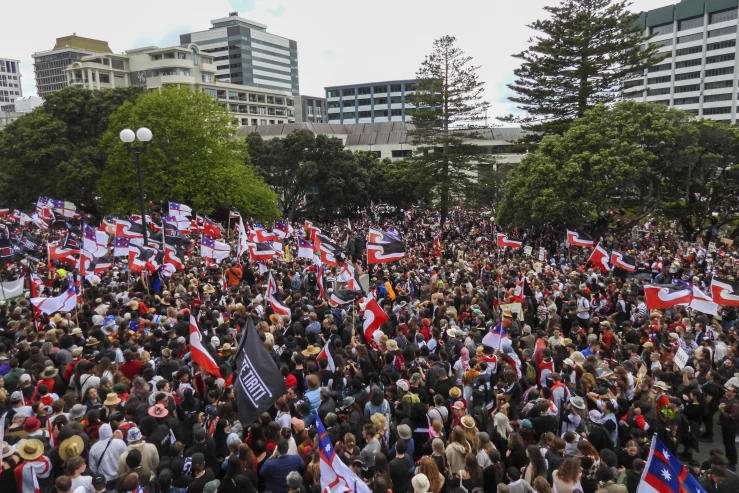“Strikes in Gaza Escalate as Drone Targets Netanyahu’s Home Amid Ongoing Conflict”
Strikes on Gaza increase in intensity as the government of Israel reports a drone targeted the residence of Prime Minister Benjamin Netanyahu on Saturday with no reported casualties. This incident unfolds amidst relentless fighting with Lebanon-based Hezbollah and Gaza-based Hamas, following the killing of the mastermind behind last year’s devastating October 7 attack. Israel’s military reported dozens of projectiles were launched from Lebanon; sirens wailed across the region. Netanyahu’s office said that the drone was heading toward his private home in the Mediterranean coastal town of Caesarea, but neither he nor his wife was there.
READ MORE: Driver charged over ‘horror’ crash that killed three of his mates
The drone attack has not been claimed by Hezbollah, but the organization said it carried out several rocket strikes on northern and central Israel. The barrage comes as Israel’s expected answer to an Iranian attack in the country earlier this month. Israel hit back with at least three airstrikes targeting southern suburbs of Beirut, namely Dahiyeh, a real estate of numerous residential buildings, including Hezbollah’s offices. The military of Israel has reportedly claimed it is examining the reported strikes.
Strikes in Gaza have intensified as Israeli forces fire at hospitals in the heavily pounded northern area of the Palestinian enclave, as the death toll increases to more than 50 people, including children, within less than 24 hours, according to hospital officials and an Associated Press journalist who reported from the scene.
It has still been a grim situation, with the civilians being the first sufferers of this continuing warlike scenario. These attacks have led to increased concerns for the humanitarian situation in the area.
On another note, Iranian Foreign Minister Abbas Araghchi voiced deep concerns pertaining to the possibility of war in the region on his visit to Turkey. In an interview, he stated, “The threat of war is a serious concern right now, as tensions are increasing with ongoing violence.”.
“Strikes in Gaza Follow Barrages from Lebanon Targeting Northern Israel”
Strikes in Gaza have coincided with the heightening conflict between Israel and Lebanon’s Hezbollah—a militia group allied with Hamas and enabler of Iran. On Friday, Hezbollah declared a new phase of fighting that would include more guided missiles and explosive drones against targets in Israel.
It followed the death of Hassan Nasrallah, the long-time leader of Hezbollah, during an Israeli airstrike last September. Adding fuel to this fire was Israel’s sending of ground troops into Lebanon earlier this month. The ongoing fighting has far-reaching ramifications regarding regional stability and humanitarian outcomes for civilians.

In the northern city of Kiryat Ata, one landed, with visible destruction, and AP reporters witnessed burned cars and a damaged building. The commander for the Haifa area, Itzik Billet, confirmed that nine people suffered minor injuries.
The Israeli fire service is currently fighting multiple fires caused by missiles in the Shlomi area near the border with Lebanon.
In a related development, Lebanon’s state-run National News Agency reported that an Israeli airstrike on an apartment in the Baaloul village in eastern Lebanon killed five people, including the mayor of the nearby village of Sohmor. Israel military said it is investigating the reports of a strike on a building in the eastern Bekaa Valley.

Against the growing conflict, the Israelis have been well ahead of the game in issuing almost daily warnings to people leaving buildings and villages in most other parts of Lebanon. The alarming situation has driven a huge humanitarian crisis that has displaced over a million people, including about 400,000 vulnerable children. Such warnings reflect the urgent need to save civilians amidst the mess.
Meanwhile, on Saturday, Israel announced the killing of the deputy commander of Hezbollah in a southern town, Bint Jbeil. The chief, Nasser Rashid, was responsible according to the Israeli army, for the monitoring of various attacks against the nation of Israel. This conflict between the two nations brings the situation to a completely new dimension and therefore is highly dangerous. The consequences of such acts may result in severe outcomes for both countries and their citizens.
“Strikes in Gaza Intensify as Hamas Refuses to Release Hostages”
Strikes in Gaza continue amid solid obduracy by Israel and Hamas to end the conflict. The tension has accentuated since the death of Yahya Sinwar, the Hamas leader, considered the main architect of the raid carried out last year on Israel, which led to the tragic murder of about 1,200 people, the majority of whom were civilians, and the kidnapping of about 250 others.
On Friday, Iran’s supreme leader, Ayatollah Ali Khamenei, weighed in on comments over Sinwar’s death, referring to it as a painful loss for Hamas. Yet, he said, “Hamas is alive and will stay alive,” suggesting the militant organization would not be threatened so easily.
Strikes in Gaza
Hamas has refused to give in to its demands over the hostages taken during the raid. The group insists that the hostages will be released only when a cease-fire is declared in Gaza, with the withdrawal of the Israeli troops from the territory. This demand itself shows the intricacy involved and how hard it may be to reach a resolution.
In turn, Israeli Prime Minister Benjamin Netanyahu declared that Israel’s military would further continue their operation until the hostages were free. He underlined that the military presence in Gaza was needed, not to let Hamas-which he said had already been seriously weakened-receive new armaments and become dangerous in the future.
Strikes in Gaza
The result of Israel’s retaliatory offense in Gaza has been devastating, and the local health authorities continue to report that more than 42,000 Palestinians are killed. These figures are not segregated between combatants and civilians, though estimates say that more than half of the casualties include women and children. The ongoing violence brings a high level of humanitarian crisis in the region and calls for immediate need for peace.

Strikes in Gaza intensified Saturday, causing heavy destruction across the territory. According to Paltel, the Palestinian communications company, bombardment early morning Saturday knocked out internet networks in northern Gaza as communication efforts were severally hampered.
The Health Ministry said that the upper floors of the Indonesian Hospital in Beit Lahiya were targeted by Israeli strikes, while its building and courtyard also came under fire, causing panic among the patients and staff. Other strikes hit the top floors of Al-Awda Hospital in Jabaliya, wounding several medical staff.
In one tragic overnight assault on Friday alone, three houses in Jabaliya were struck, killing at least 30 people, more than half of them women and children, said Fares Abu Hamza, head of the health ministry’s ambulance and emergency service. At least 80 others were injured in that incident.
In central Gaza, it was no different, as at least 10 people, including two children, were killed when a house in the town of Zawayda was struck, according to Al-Aqsa Martyrs Hospital in Deir al-Balah. Another strike in the Maghazi refugee camp killed 11 members of one family. Associated Press journalists witnessed the carnage, counting bodies from both incidents.
Among targets hit were a United Nations school in western Gaza City, which was sheltering displaced people, several of whom were killed, first responders from Hamas-run civil defense said.
The continuing war has reduced great swathes of the Gaza Strip to rubble, and as many as 90 percent of its 2.3 million inhabitants have been displaced. The humanitarian situation continues to deteriorate, with survivors struggling to find food and water, medications, and fuel amidst the devastation.
Some see hope after Sinwar’s death
Sinwar’s killing could shift the dynamics of the war in Gaza, while Israel presses its offensive against Hezbollah with ground troops in southern Lebanon and airstrikes in other areas of the country.

Strikes in Gaza have raised fresh hopes for the long-awaited end to the decades-long conflict, particularly after Yahya Sinwar, the chief of Hamas, was killed. Even staunch allies of Israel and war-weary residents of Gaza viewed this significant development as an opportunity that could usher in peace.
Strikes in Gaza causing the killing of Sinwar presents an opportunity to revive negotiations for the safe return of their loved ones, families of hostages who remain captive in Gaza have been telling Israel’s government. An estimated 100 hostages remain in captivity in Gaza, at least 30 of whom are dead according to Israel.
While Israel has pledged to dismantle Hamas politically in Gaza, the killing of Sinwar had been an important military objective. But Prime Minister Benjamin Netanyahu hastened to add that even with this success, “our war is not yet ended,” insinuating there was much to be done yet.
For more information visit :Global Politics of Globalhub360





